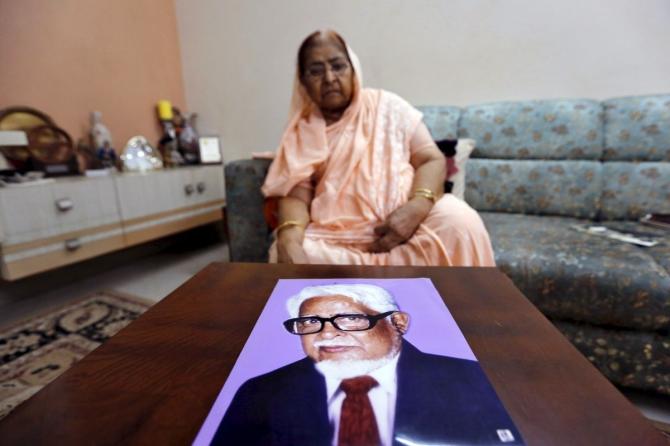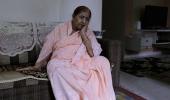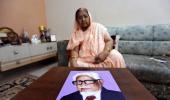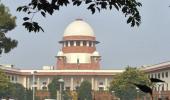There was no material to substantiate claims of any larger conspiracy in the 2002 Gujarat riots and the idea behind alleging that the violence was State-sponsored is to keep the 'pot boiling' which showed 'sinister signs,' the special investigation team told the Supreme Court on Wednesday.

The SIT told a bench headed by Justice AM Khanwilkar that complaint filed by Zakia Jafri alleging larger conspiracy in the riots was not converted into an FIR and the apex court had asked the SIT to look into it and act in accordance with law.
Zakia Jafri, the wife of slain Congress leader Ehsan Jafri who was killed at Gulberg Society in Ahmedabad on February 28, 2002, during the violence, has challenged the SIT's clean chit to 64 people including Narendra Modi, the then Gujarat chief minister during the riots.
Senior advocate Mukul Rohatgi, appearing for SIT, told the bench that a protest petition of around 1,200 pages was filed by Zakia Jafri and it was said that the same be treated as a complaint.
“Now, after 20 years, treat this as a complaint. Why? You want to keep this as a boiling pot or what? This also shows sinister signs, to keep this as a pot boiling. Why would anybody keep the pot boiling? Because there is something else,” Rohatgi told the bench, also comprising Justices Dinesh Maheshwari and CT Ravikumar.
“That is why it is saying State sponsored, look at this, look at that, look at higher echelons. Because the idea is to keep the pot boiling,” he told the bench.
He argued that the top court had asked the SIT to look into Zakia Jafri's complaint as it had recognised the 'pain of a widow.'
He said Teesta Setalvad, who is petitioner number two in the plea filed by Zakia Jafri in the apex court, had joined the proceedings when it was before the high court.
“And in fact, your lordships will get material, that several people came to the SIT with pre-prepared statements. Their statements were recorded by the SIT and they said that these pre-prepared statements, to which they have appended signatures, are dictations of Teesta Setalvad, the petitioner number two,” he said.
When Rohatgi referred to the allegations, the bench observed, “The National Human Rights Commissions had not recorded a finding that it was a state sponsored riot.”
“Not at all,” the senior advocate said.
Rohatgi, who referred to the trial court judgement in the Gulberg case, said, “There is a categorical finding after all discussion that there is no material to show that there is any larger conspiracy.”
Regarding the allegations that there was a build-up of arms by some Vishwa Hindu Parishad fellow prior to the Godhra train incident on February 27, 2002, he said it is 'preposterous' as it would mean that those persons knew that some untoward incident would happen that day.
During the arguments, which would continue on Thursday, Rohatgi said riots happen at a place because the state administration is 'run over' by the mob.
He said in the Gujarat violence, there may be a case of negligence or dereliction of duty, but it cannot be a case of conspiracy between the political echelons, police and others.
“The argument of other side is that this is the job of the court whether the evidence is acceptable or not acceptable. The SIT has to place that along with the police report before the court,” the bench said.
Rohatgi said the SIT had investigated, recorded statements and come to a conclusion.
“That conclusion you are entitled to reach, there is no difficulty. But that has to be placed before the court,” the bench said.
Rohatgi said the SIT had placed entire material before the court.
“If there is something wrong with a court judgement, that is redressable by the legal system. If the court finds something wrong, something right, it is redressable by a court in a hierarchy,” he said.
Rohatgi said the trial court as well as high court had spent so many hours on the issues raised by Zakia Jafri and it cannot be said that there was no application of mind by the courts below.
“Is there any empirical data to show how many hours or days have been invested by this SIT in investigating. Is there any data immediately available,” the bench asked.
Rohatgi, who said he would have to check this, told the bench that the protest petition and closure report filed by the SIT was substantially dealt with by the trial court and the matter was heard from April 15, 2013 and order was passed in December 2013.
Zakia Jafri's counsel had earlier argued that her complaint of 2006 was that there was “a larger conspiracy where there was bureaucratic inaction, police complicity, hate speeches and unleashing of violence."
Ehsan Jafri, the former MP, was among the 68 people killed in the violence, a day after the Godhra train incident.
On February 8, 2012, the SIT had filed a closure report giving a clean chit to Modi, now the Prime Minister, and 63 others including senior government officials, saying there was 'no prosecutable evidence' against them.
Zakia Jafri had filed a petition in the apex court in 2018 challenging the Gujarat High Court's October 5, 2017 order rejecting her plea against the SIT decision.
The high court in its October 2017 order had said the SIT probe was monitored by the Supreme Court.
However, it partly allowed her petition as far as its demand for a further investigation was concerned saying she can approach an appropriate forum, including the magistrate's court, a division bench of the high court, or the Supreme Court seeking further investigation.












 © 2025
© 2025